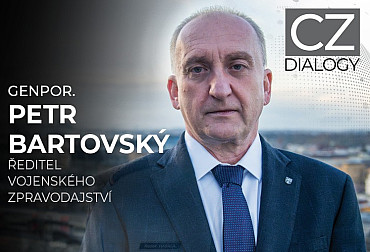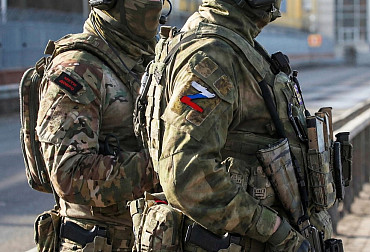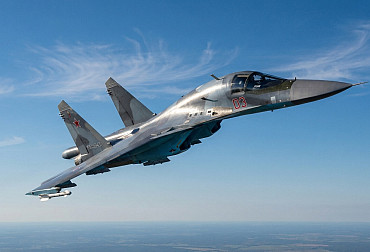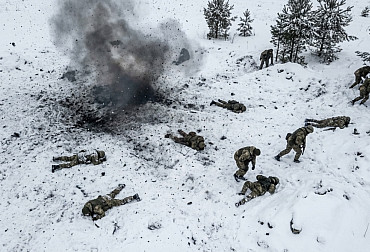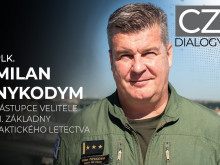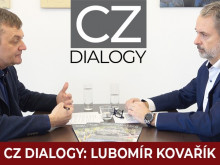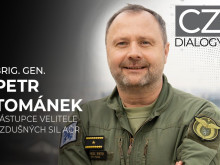Col. Ivo Zelinka: In the field of civil-military cooperation, we are among the best NATO has to offer.
The Information and Cyber Forces Command (VeInKyS) includes the 91st Information Warfare Group. This is a unit of the Czech Army designed to carry out information operations, psychological operations, civil-military cooperation (CIMIC), information space monitoring, and strategic communications (StratCom) support. It has two information operations centers, one of which is made up of active reserve soldiers. It also has a CIMIC center, an information support center, and a StratCom support center. These units are supported by a product development group with multimedia production and a security platoon providing basic logistics. The unit is capable of supporting three maneuver elements of the Czech Army, the 4th Rapid Deployment Brigade, the 7th Mechanized Brigade, and the 43rd Airborne Regiment, and can also operate at the strategic level, particularly in support of the General Staff. The commander of the 91st Information Warfare Group is Colonel Ivo Zelinka, who was a guest on the latest episode of our discussion program CZ DIALOGUES.
Video: Interview with Colonel Ivo Zelinka, commander of the 91st Information Warfare Group / CZ DEFENCE
The 91st Group has several main tasks. These include conducting psychological operations, which by definition are directed against an enemy formation or its population in order to reduce its will to fight. "This is an activity we carry out for the benefit of the maneuver units of the Czech Army, i.e., two brigades and the 43rd Airborne Regiment," says Col. Zelinka in an interview.
Another task of the group is civil-military cooperation. "These are so-called soft negotiation techniques towards non-governmental organizations and many other actors, including refugees. The aim is to give the maneuver commander free rein on the battlefield and prevent civilian casualties. And also to keep communication channels open," explains the commander of the 91st Information Warfare Group. According to him, three capabilities must be ensured at all times, whether in the land, air, or maritime domain. "The first is defense, the second is attack, and the third is reconnaissance. We are assisted by a center that processes intelligence from open sources and social networks. It collects information, analyzes it, and creates intelligence products for our own use, so that we can better target specific groups, but also for the army as a whole. After all, it also helps other state agencies," explains the commander of the 91st Information Warfare Group.
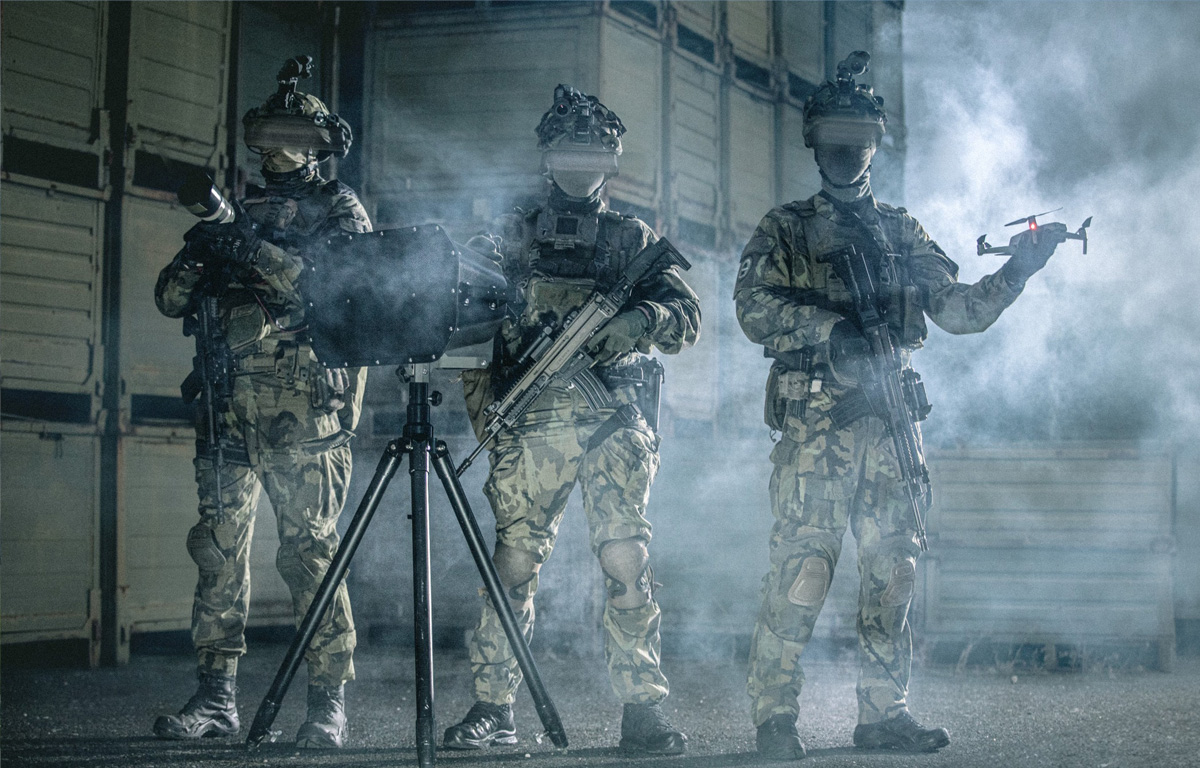
If we disregard the fact that this is a unit of the Czech Army, according to Colonel Zelinka, the 91st Information Warfare Group can be described, with a certain degree of exaggeration, as a marketing agency in camouflage in the woods. "It's not complete exaggeration, because when I describe the skills we are looking for in candidates, most of them can be found in a marketing agency. So we need marketers and analysts. We need people who can work on social media and create content for it. We are looking for media coaches who can train others. But of course, we are also looking for drivers, logisticians, warehouse workers, and so on," says the group's commander, describing its composition.
During the interview, we also learned that hundreds of soldiers serve in the 91st Information Warfare Group. "We are a regimental-type unit. We do not belong to the ground forces, we are not infantry, we are specialists. Most of our soldiers start at the rank of sergeant," says Col. Zelinka, describing the structure of the group in more detail.
According to its commander, there is interest in working in the 91st Information Warfare Group compared to other units of the Czech Army, but the group faces completely different problems. "Compared to the rest of the army, which has been struggling with recruitment recently, we can't complain at all. On April 1, we exceeded 90%, so our staffing level is good. I attribute this to several factors. The first is that the unit is based in the middle of Haná in Olomouc, which is an ideal recruitment region. The second factor is the type of military unit. It is a young, fast-growing type of military unit with many young people. And as it grows rapidly, the numbers on the charts grow every year, so career paths are also quite accelerated, which is particularly attractive to young people. The third factor is the nature of the work. We are on the borderline between the military and the civilian sector. Many of our activities are much closer to what the police or paramedics do. This work matters every day, and our intelligence officers work in shifts every day to prepare intelligence products and maintain social media. If someone wants to feel satisfied that they are on the information front every day and that their work really matters, then we are the right choice," says Colonel Zelinka.
Soldiers of the 91st Information Warfare Group work with information, and especially disinformation, on a daily basis. "I don't really like to use the term disinformation, because in the Czech public sphere today it means something else, something like an alternative opinion or a different opinion. We use the term hostile propaganda. It defines much more clearly what it is and where it comes from. The actor is the enemy. For example, Russia and its propaganda. This is not true information. It is partially true or completely false information, or even lies. It is often intended to bring about cognitive and behavioral changes. This means that the enemy thinks something different and then does something different," explains Col. Zelinka.
For this type of operation, it is also necessary to model the training of soldiers, which to a large extent does not follow established patterns and is not conducted solely on computers. "We do not conduct information operations only in cyberspace, but also in real space. This can take the form of leaflet drops, radio broadcasts, or acoustic signals, for example using long-range loudspeakers, known as LRADs. So a large part of the front line action takes place in physical space. We definitely train in traditional military training areas, typically in Libavá, but also elsewhere, of course. Part of it also takes place in cyberspace; we have Prevency software that simulates the main social networks. And our colleagues in Brno have cyber range software, which is an artificial environment for cyber attacks. It's a combination, and it's really quite unconventional," says the commander of the 91st Information Warfare Group.
The group trains regularly, even at the international level. "Let me give you an example. Last summer, we organized the Powerful World exercise, which was NATO's largest exercise focused on psychological operations and civil-military cooperation here in Europe. Eight Alliance armies participated. The large ones included the Americans and Germans, while the regional ones included the Slovaks and smaller nations such as the Belgians and Dutch. It was really good to practice the scenario under Article 5 of the Alliance Treaty together and to compare the procedures, which vary relatively between nations. The point is not to harmonize them so that they are the same, but to understand how we can complement each other," says Col. Zelinka, explaining the importance of Alliance exercises.
In civil-military operations, which is one of the activities of the 91st Information Warfare Group, Czech specialists have a certain advantage over their foreign colleagues. "They tend to be a little older than their Alliance colleagues, which gives them a certain maturity of character. And the second thing is that we are a medium-sized nation and we have the ability to empathize with our counterparts. This can sometimes be problematic for large nations. In the field of civil-military cooperation, we are among the best NATO has to offer," says the commander of the 91st Information Warfare Group.
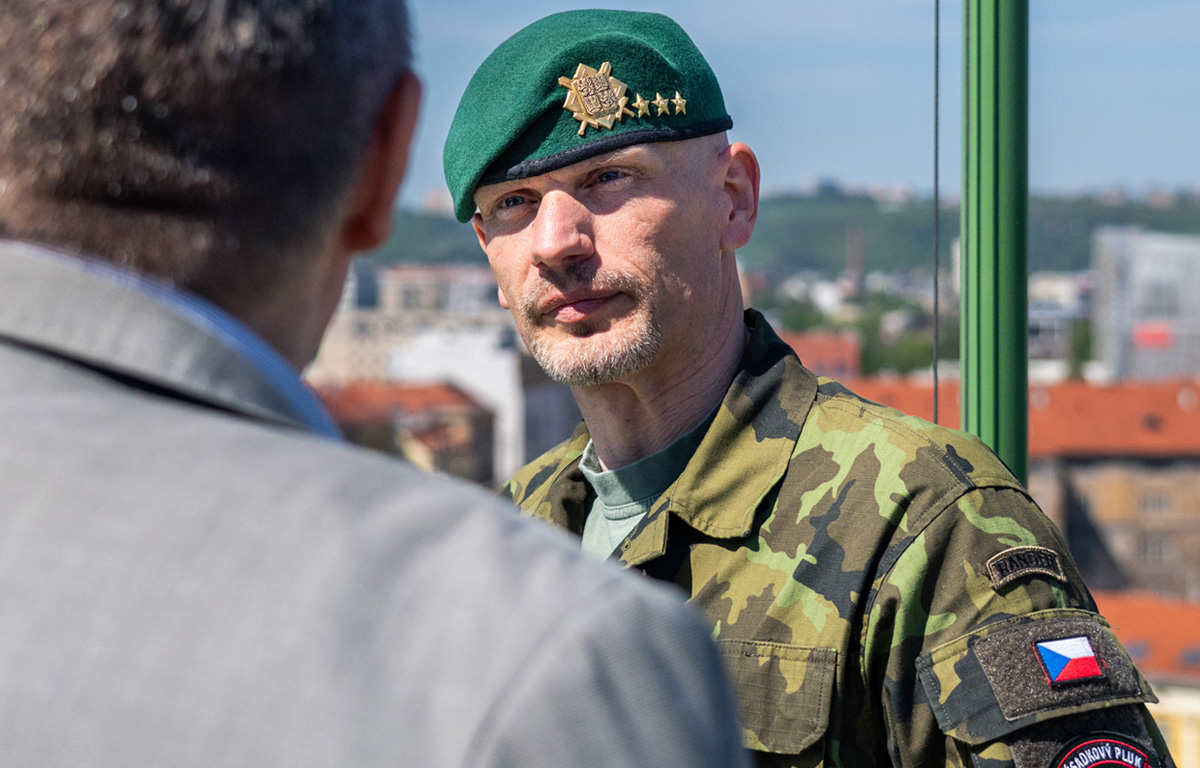
The ethical dimension of electronic and information warfare is also important. "We are still soldiers of the Czech Army. We are bound by the laws of the Czech Republic. Russia, on the other hand, is a dictatorship, while we are a democratic country in the Western world. One characteristic that we have as the Czech Army is trustworthiness. If we lied, we would lose that trust. It is extremely important for us to stick to the truth, and that would also apply in wartime. Today, it is only a matter of hours before it becomes apparent that you have misinformed someone, and it would definitely be discovered," says Col. Ivo Zelinka.
We also spoke with the commander of the 91st Information Warfare Group about current threats and the resilience of the population, and we defined the cyber battlefield and the tools used to fight it. We also discussed social media. In the interview, you will also learn how the commander of the 91st Information Warfare Group assesses the functionality, effectiveness, and benefits of the virtual recruitment center DoArmády.cz, of which Col. Zelinka is a co-author. If you want to learn more, listen to the entire interview at the beginning of this article.











